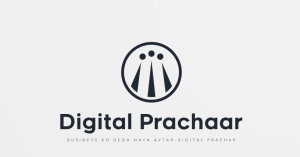Why WordPress Is Better Than Other CMS Tools? Reasons & Explaination .
If you want to gain information about ” why wordpress is better than other cms “, So your search ends

Check our other blogs “Here“
Hello all, This side Digital Prachaar Blog Team – We are here to inform you that Digital Prachaar also do online free training sessions to students and our blogs also helps students to making their assignments easily. Our blogs is well structured in easy language which helps you to understand your points easily. Our Blogs are also published in our other website “avdigitech.site” You kindly check our other website which can help you to find your topic.
Title: Maximizing On-Page SEO: A Comprehensive Guide
In the ever-evolving landscape of digital marketing, on-page SEO remains a cornerstone for achieving better search engine rankings and driving organic traffic to your website. As search engine algorithms become increasingly sophisticated, understanding and implementing effective on-page optimization techniques is crucial for staying ahead of the competition. In this comprehensive guide, we’ll explore actionable strategies to maximize your on-page SEO efforts and boost your website’s visibility.
Understanding On-Page SEO
On-page SEO refers to the practice of optimizing individual web pages to rank higher and earn more relevant traffic in search engines. Unlike off-page SEO, which focuses on external factors like backlinks and social signals, on-page SEO revolves around optimizing elements directly within your website. These include content quality, keyword optimization, meta tags, URL structure, and more.
Crafting High-Quality Content
Content is king in the realm of SEO, and quality reigns supreme. To enhance your on-page SEO, focus on creating informative, engaging, and relevant content that addresses the needs and interests of your target audience. Conduct thorough keyword research to identify relevant topics and incorporate target keywords naturally throughout your content. Strive for originality, readability, and value to both users and search engines.
Optimizing Meta Tags
Meta tags, including title tags and meta descriptions, play a crucial role in on-page SEO. Craft compelling and descriptive title tags that accurately reflect the content of each page while incorporating target keywords. Similarly, write concise and persuasive meta descriptions that entice users to click through to your website from search engine results pages (SERPs). By optimizing meta tags, you can improve click-through rates and signal relevance to search engines.
Structuring URLs
URL structure is another important aspect of on-page SEO. Create clean, descriptive, and user-friendly URLs that convey the content and purpose of each page. Avoid using lengthy, convoluted URLs filled with unnecessary parameters or special characters. Instead, opt for short, keyword-rich URLs that are easy to read and understand. A clear URL structure not only enhances user experience but also improves crawlability and indexing by search engines.
Enhancing User Experience
User experience (UX) is increasingly intertwined with on-page SEO. Optimize your website’s design, navigation, and usability to create a seamless and intuitive browsing experience for visitors. Ensure fast page load times, mobile responsiveness, and intuitive navigation menus to reduce bounce rates and encourage engagement. By prioritizing user experience, you can improve dwell time, increase page views, and signal quality to search engines.
